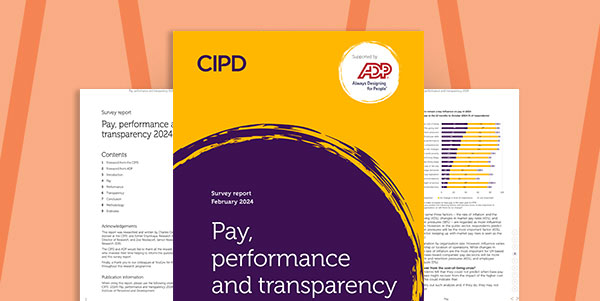The National Minimum Wage (NMW) is a piece of legislation designed to protect workers against poor remuneration for their labour. Introduced by the New Labour government in 1999 to uncertainty from business leaders, the NMW’s goal is to protect as many low-paid workers as possible without hurting jobs or the economy.
Before the introduction of the NMW, swathes of the UK population faced pay deemed as exploitative, with no legal recourse available to them. The National Minimum Wage Act 1998 championed a basic standard of living for all workers, representing a wind-change moment for employee rights. Overnight, the NMW raised the pay of well over one million low-paid workers by about 15%. Initial fears of job losses and knock-on effects on the wages of better-paid workers never materialised, according to a report by the London School of Economics.
A benchmark for fair pay, the NMW requires that employees, regardless of age or employment status, receive compensation that adequately reflects their contribution to the workforce.
The National Minimum Wage is now a central ingredient in UK employment law and should be reflected in your payroll compliance to avoid the risk of fines (up to £20,000 per worker) and reputational damage to your brand. In this article, we’ll take some time to understand the National Minimum Wage in the UK and explore how it affects your payroll compliance.
The Basics of NMW
The National Minimum Wage rates are updated annually and vary by worker's age and whether or not they are an apprentice. As of April 2024, the rates are:
- Under 18: £6.40
- 18 to 20: £8.20
- 21 and over (National Living Wage): £11.44
- Apprentices: £6.40
These rates are set by the Low Pay Commission. They’re an independent body that advises the government on the NMW based on economic factors such as inflation and the cost of living. The Low Pay Commission works according to a remit set by the Government.
It’s important to highlight the difference between the National Minimum Wage and The National Living Wage. The NMW only applies to workers under 23 years old and those registered as apprentices, whereas the NLW is for workers aged 23 and over. The NLW is set higher to reflect the higher living costs faced by older workers.
The NLW is also a voluntary scheme designed by the Living Wage Foundation to address the discrepancy between the minimum wage and the true cost of living. It’s voluntarily paid by over 14,000 UK employers who value providing a wage that meets their people’s everyday needs. In the UK, it’s £12.00 per hour and £13.15 for employees in London.
Legislative framework
The National Minimum Wage Act 1998 provides the legislative framework for employers, specifying who is eligible to receive the NMW, how the rates are calculated, and the consequences for being non-compliant. HR and payroll service providers and teams should be well-acquainted with this legislation to avoid the risk of penalties and issues arising from payroll compliance.
The Low Pay Commission is an independent body that advises the government about the National Living Wage and the National Minimum Wage. Composed of academics, doctors and policymakers, the Low Pay commissioners conduct wide-ranging research and consultations with organisations and employers. To properly understand the present context, they’ll look at factors such as the economy, productivity levels, and the impacts any changes will have on businesses and their workers. They cite an evidence-based approach, and their recommendations are a fine balancing act between equitable compensation and economic sustainability for businesses.
Changes to NMW rates are usually announced by the Chancellor in the Autumn Budget and come into effect in April of the following year.
Impact on employers and employees
Employers are legally required to pay their workers at least the NMW rate according to their age. Employers should also be vigilant in keeping up-to-date and accurate payroll records to show compliance with these regulations. Perceived failure to provide fair compensation or lack of evidence can result in troublesome legal issues for businesses.
Employees have the right to receive at least the NMW. They can challenge underpayments through the Government’s ACAS service.
Employers who fail to comply with NMW regulations face big penalties from HM Revenue and Customs (HMRC). These can range from large fines (up to 20,000 per employee) or criminal prosecution for severe breaches. That’s why it’s so important that employers properly understand their legal obligations when it comes to the Minimum Wage.
Common issues and challenges
Employers often stumble into issues with the NMW when managing payroll. Confusion around the NMW and its legal application across different age groups and employment types can result in compliance mistakes. For example, employers might incorrectly classify an intern as an apprentice (by law, interns need to be paid NLW past the age of 21, whereas an apprentice rate is set at £5.28). This would leave the employer wide open to an underpayment dispute. That’s why HR teams must be provided with crystal-clear guidance and training on wage laws and labour laws–to avoid costly payroll mistakes.
Case studies and examples of disputes concerning NMW
This year alone, 542 businesses have been named and shamed for non-compliance with the NMW. Employers were ordered to repay workers nearly £16 million, plus an additional financial penalty, after breaches left over 172,000 workers out of pocket. The list, published by Gov.UK and major broadsheet newspapers, includes household brands and highstreet favourites. This underscores that every business is at risk of flouting wage laws. The penalties are unrepentant and pose a reputational risk to your brand and hiring strategies.
Luckily, employers can mitigate these risks by investing in training for HR and payroll teams. Turning to payroll experts and legal professionals can provide additional clarity on complicated cases, or if an underpayment claim is brought against you. If you don’t have the resources to keep up-to-date with wage laws, outsourced payroll teams can do this for you.
Annual updates and trends
The NMW and NLW rates are updated annually to reflect societal and economic trends. The most recent increase is higher than usual, reflecting the cost of living crisis. The Living Wage is set to increase by 9.8% to £11.44 an hour on 1st April, as announced in November’s Autumn statement.
The NMW and MLW have been increasing in the last few years to keep up with inflation and historically low rates of productivity. Rises in the cost of rent and mortgage repayment are another factor affecting living standards in the UK, undoubtedly influencing the most recent increase. It’s impossible to accurately predict future changes, but as the cost of living crisis deepens, it’s likely to continue to have a knock-on effect on the NMW rates.
Resources and Support
GOV.UK’s National Minimum Wage for Employers provides a comprehensive guide to NMW and NLW rates and compliance for employers.
For more information on the Low Pay Commission, the independent body that advises the government on the NMW, this page provides a useful overview.
Trade unions and advocacy groups play a central role in fair pay and workers' rights concerning the NMW. They can offer resources, support and advocacy for employees facing underpayment issues. For more information on joining a trade union, or finding one with members from your organisation, read GOV.UK’s guide to Joining a Union. TUC also have a helpful search tool.
Employees who think they’re being underpaid can seek advice and support from organisations such as ACAS (Advisory, Conciliation and Arbitration Service) or report NMW violations directly to HMRC through the GOV.UK report underpayment page.
Conclusion
Since its inception in 1999, the National Minimum Wage has proven to be an effective way to ensure wage fairness and protection of employee rights in the UK.
HR softwares should take time to understand the complexities of this legislation, and how it applies in certain instances. Payroll compliance relies on proper education and training, and your teams should be trained on how to manage wages ethically and legally.
Essentially, the National Minimum Wages means your people are paid fairly for their labour. The penalties for non-compliance are hefty and potentially brand-damaging–so stay clued up. Be proactive in your understanding of the National Minimum Wage to avoid payroll compliance mistakes, and ensure your business runs smoothly.




